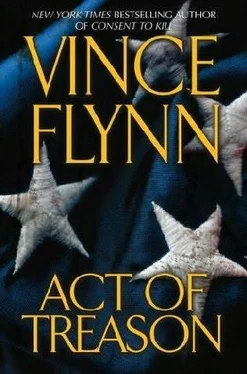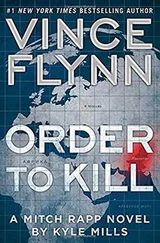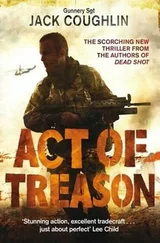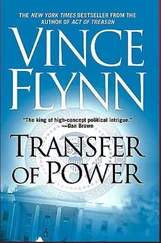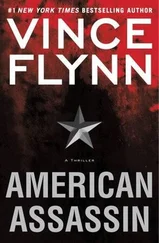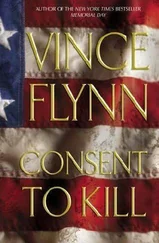“POTUS has called a meeting for zero seven hundred.” POTUS was the military’s acronym for President of the United States.
“In the Situation Room?”
“No, the Oval, Ma’am.”
“I’ll be there.”
Kennedy placed the handset back in its cradle and thought, So much for sleeping in on Sundays. She threw back the covers and laughed to herself. She was going to be out of a job pretty soon. Or at least this job, and whatever job came after this one would be undoubtedly less demanding. She could sleep in all the Sundays she wanted.
The tile on the bathroom floor felt cold on her bare feet. January in DC. Kennedy turned on the bathroom light and studied her face in the mirror. At forty-five she looked pretty good for her age, but at six in the morning with no makeup and bed lines on her face, she was frightening. Being a woman in this town wasn’t easy. She turned on the shower to give it a chance to warm up and started brushing her teeth. With toothbrush in mouth she walked out to the kitchen and put on some hot water for her tea. On the way back she poked her head in her son’s room to check on him. He was safe and warm beneath the covers.
Kennedy did not like being cold. She put her hair up and stepped into the hot shower. For five minutes she stood under the water, increasing the temperature until her skin turned pink. It took her five minutes to dry off and get dressed and another five to put on her face. By 6:33 she’d alerted her security detail of the meeting and was in the kitchen taking her first sip of tea and dialing the Global Ops Center at Langley on a secure line. The duty officer answered on the first ring. Kennedy asked him if there was anything worth reporting. He said it had been a pretty slow night. She was surprised by the answer and asked him if he was sure. He told her he was. The director thanked him and hung up.
Kennedy grabbed the warm mug with both hands, leaned against the kitchen counter and asked herself why the president was calling a 7:00 a.m. meeting on a Sunday morning. If the Global Ops Center was in the dark, the odds were the crisis had emanated at the Pentagon, or maybe Justice. With one week to go until the ax fell, Kennedy found herself strangely ambivalent about the whole thing. She took another sip of tea and wondered if this was good or bad. She’d been the consummate professional her entire adult life. She spent more than twenty years at Langley and she had given it her all. The job had even cost her a marriage. She thought about that for a moment and realized it wasn’t fair to blame the failed marriage on Langley. It would have failed if she’d been a stay-at-home mom. Her ex was too selfish. He proved that yet again when his second marriage fell apart after nine short months. He was a decent man, but a mama’s boy, which made him extremely high maintenance and Kennedy had neither the time nor the desire to give his ego the attention he desired. Plus, one-way relationships were never a good idea.
Kennedy climbed into the back of her Town Car and picked up the Sunday edition of thePost. Maybe withdrawing from the job was her subconscious protecting herself from the inevitable disappointment of being shown the door. Anything was possible, she supposed. She did not want to leave Langley, especially after such a brief stint as director. She’d been there over twenty years. Practically her entire adult life. She would miss the people and the action that went along with running the world’s most unfairly maligned spy agency. She wouldn’t miss the hours, and she most definitely wouldn’t miss the politics. She’d miss the place though. There was no doubt about it.
When they pulled up to the first checkpoint, it was already 7:00 a.m. By the time she cleared security she was five minutes late. When she entered the Oval Office she found four men standing in a loose circle around the president’s desk. They were the president himself, Attorney General Stokes, FBI Director Roach, and President-Elect Alexander. Roach was in a gray suit and striped tie. The other three were wearing blazers, dress slacks, and open-collar shirts. At first glance she was surprised by the absence of several key players, the Secretaries of Defense and State, the president’s national security advisor and his chief of staff. Then she remembered it was a Sunday morning with just six days left until the peaceful, democratic transfer of power. Very little got done this week. The career bureaucrats and professionals were busy running the government while the political appointees had either moved onto new jobs or were busy looking for one.
President Hayes stopped talking when he saw Kennedy and said, “There she is. The woman of the hour.”
All four sets of eyes focused on Kennedy. She blushed slightly and asked, “And why would that be, Mr. President?”
“Always modest, this one,” Hayes said to President-Elect Alexander. “You’ll figure that out soon enough. No offense to these two over here,” Hayes gestured to Stokes and Roach, “They have done admirable jobs, but this one here…she’s done an amazing job and she gets almost no credit for it. All of her victories and successes are locked up in a vault out at Langley. A hundred years from now they’ll be writing about her in the history books.”
Kennedy blushed. She stood motionless midway between the door and where they were standing. She was not used to such attention and looked uncomfortable.
Hayes smiled, gestured toward the furniture opposite his desk, and said, “Let’s sit.”
Two lengthy couches, big enough to comfortably seat four adults each, faced one another with a glass-topped coffee table in between. In front of the fireplace sat two blue and gold striped silk armchairs. President Hayes gestured for Alexander to sit next to him in front of the fireplace. The place of honor.
“Would anyone care for coffee or tea?” Hayes was hovering in between the two couches. He bent down and dropped a bag of Green Tea in a china cup and added hot water. His hand shook ever so slightly. “Irene.” He placed the cup on a saucer and handed it to Kennedy.
Kennedy had not missed the president’s unsteady hand. Even with the medicine he’d been taking for his Parkinson’s, the tremors had grown in frequency and severity over the last few months. He’d lost nothing mentally, but she understood why he’d decided to not seek reelection. In this new media age the scrutiny would have been horrible. The other side would have attacked him as selfish for not stepping aside. Elements of his own party would have undoubtedly done the same, and with an approval rating in the low forties, his chances for victory were a crapshoot at best. With his decision not to run he had secured his reputation in the history books. He would be looked on as a wise, unselfish man. Kennedy agreed with that assessment. Robert Hayes had never lost sight of the fact that the office was bigger than the man.
The other three men took coffee and then Hayes settled in next to Alexander in front of the fireplace. He looked over at his replacement and asked, “Where are you staying this week?”
“The Willard.”
“Ah,” the president nodded. “A grand old hotel.”
“Yes.”
“They have you in a good room, I hope,” Hayes grinned.
“The top floor.”
“My offer still stands.”
“Blair House,” Alexander said in a dead voice.
“It’s close, and very secure.”
“Thank you, Mr. President, but there are simply too many people coming and going this week. The party has me booked from sun up till sun down.”
“Thanking all the fat cats.” Hayes nodded, having gone through the same thing four years earlier.
Hayes was turned sideways in his chair half facing his replacement. He barely knew the governor from Georgia, but it was obvious that he had changed since the attack on his motorcade. He seemed more distant. His eyes were not as full of promise as they’d been during the early months of the campaign. Hayes wondered if this would help him when he took over the reins of power. Make him more thoughtful and reflective. Or if he’d become jaded from his experience. The president felt sorry for him. This should be a week full of hope and promise. A renewal of sorts. Maybe the news he had for him would help bring about some closure.
Читать дальше
